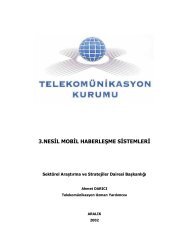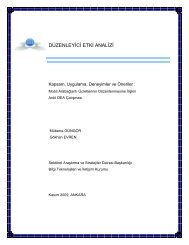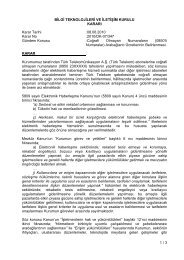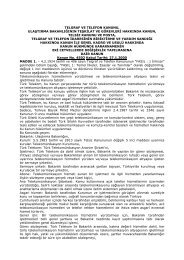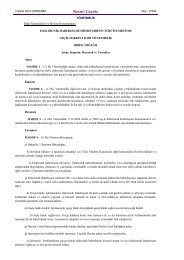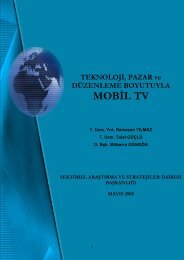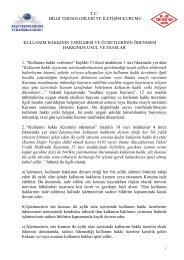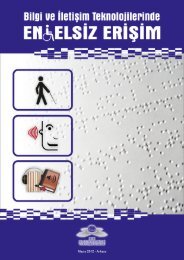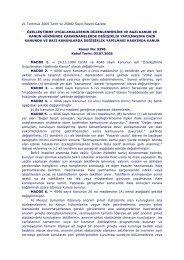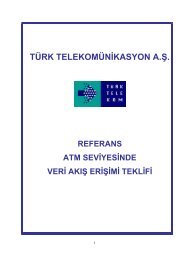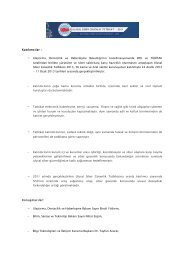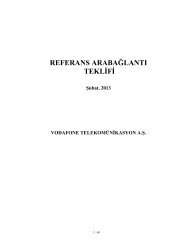city university london school of social sciences convergence of ...
city university london school of social sciences convergence of ...
city university london school of social sciences convergence of ...
You also want an ePaper? Increase the reach of your titles
YUMPU automatically turns print PDFs into web optimized ePapers that Google loves.
a new converged framework that covers all ICT sector.5.4. Proposals to Deal with Challenges <strong>of</strong> Convergence in TurkeyIt is clear from the analysis at the above section that current regulatory framework inTurkey is not formed to deal with challenges <strong>of</strong> <strong>convergence</strong>. Current separateregulatory framework is a burden to market players willing to provide convergedservices. This is a disincentive fact obstructing the development <strong>of</strong> <strong>convergence</strong>. It isa fact that <strong>convergence</strong> challenges traditional notions <strong>of</strong> regulation, implying theneed for a new approach. EC, ITU and OECD together highlight that <strong>convergence</strong> inservices and markets necessitates <strong>convergence</strong> <strong>of</strong> laws, may also necessitate the<strong>convergence</strong> <strong>of</strong> institutions as stated above sections. In this sense, a revision ontraditionally separate regulatory framework in the country is necessary. However it isstated by OECD (2004), that integration <strong>of</strong> formerly separate legal and policyframeworks is not simple (p.3).At this point it is important to decide how to define the new regulatory approach. Asstated above sections, there are a couple <strong>of</strong> different approaches recommended byinternational and regional bodies. Amongst them, progressively introducing a newregulatory model to cover whole range <strong>of</strong> existing and new services is interpreted tobe the best for Turkey, in order to provide a regulatory environment with a horizontalapproach covering all services where sector specific rules left their place tocompetition policy.The new converged regulatory framework should pay attention to universal serviceissue and ensure that access to basic services should be provided. However as it isanalyzed in Section 2.3.4.1. universal service in telecommunications andbroadcasting sectors have different dimensions and there is no need for an integrateduniversal service policy. Also, towards the recommendations <strong>of</strong> OECD and ITU,carriage and content should have separate regulatory arrangements. As culturalconcerns related to content regulation are still exist, content should be regulatedintently in a convergent environment. Further, as globalization is a phenomenon <strong>of</strong>today‟s world, cultural issues regarding protection <strong>of</strong> national values gain moreimportance. Taking these into account, it is interpreted that content should be43



